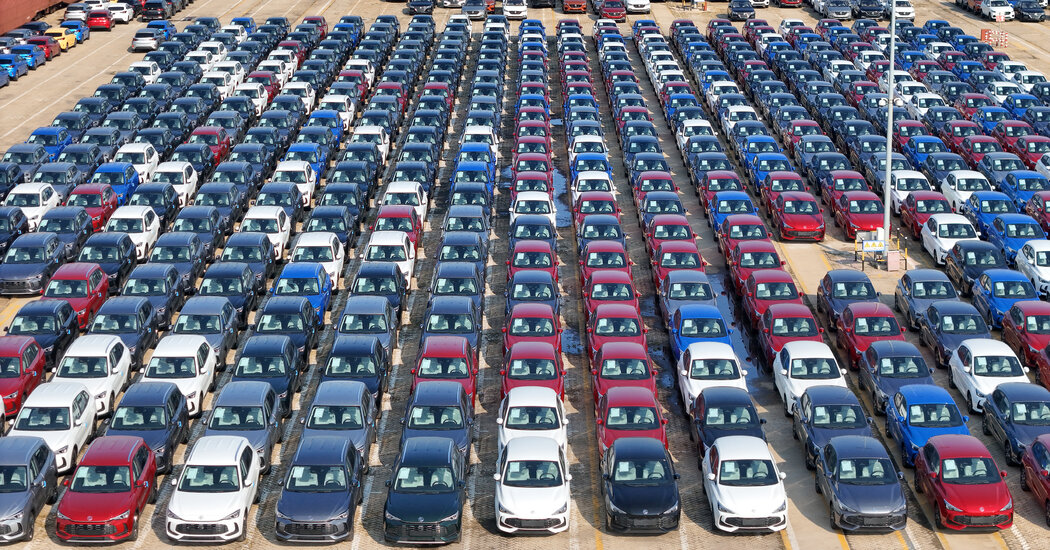Days ahead of the U.N.’s global negotiations on climate change, China and other developing countries said trade restrictions should be part of the talks.
Before they even started, next week’s talks over the world’s collective response to climate change got even more complicated with an 11th-hour move by China on Tuesday.
Writing on behalf of a group of large, industrializing countries, including India, Brazil and South Africa, the Chinese delegation to this year’s United Nations-sponsored climate summit, called COP29, which starts next week in Azerbaijan, lodged a request that the meeting’s agenda include discussion of “unilateral restrictive trade measures.”
The move is directed squarely at the European Union, which, by next year, is planning to implement two laws that would impose fees on the import of goods that have high climate costs, whether through carbon emissions or deforestation.
A spokesman for the United Nations’ climate body confirmed it had received China’s agenda submission.
Because COP29’s agenda must be agreed upon by consensus, each new submission for a discussion item threatens to mire the talks in a prolonged squabble, leaving less time to hammer out a resolution that, while nonbinding, would reflect a set of objectives shared by all participating countries.
E.U. representatives have argued in the past that trade issues belong at annual meetings of the World Trade Organization, even if trade and climate are closely linked. E.U. countries already pay carbon taxes, and the 27-country-body says it is pushing through measures to prevent its industries from being undercut by cheaper imports that don’t adhere to their standards on emissions reductions.
